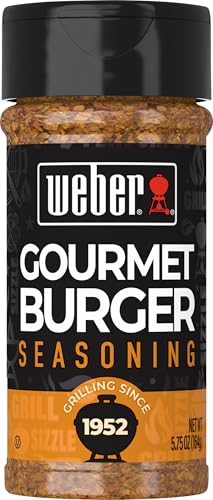Key Takeaways
- Sustainable Farming Techniques: Burger farms adopt practices like regenerative agriculture and humane livestock management to improve soil health, promote biodiversity, and ensure ethical treatment of animals.
- Economic and Environmental Benefits: Sustainable farms enhance local economies by sourcing ingredients nearby, reducing costs and supporting small businesses while also minimizing ecological impacts through eco-friendly methods.
- Innovative Practices: Techniques such as crop rotation, water conservation strategies, and organic pest management not only enrich flavor but also contribute to more responsible farming practices.
- Community and Collaboration: Local collaborative farms illustrate the importance of partnerships between farmers and consumers, fostering community connections and ensuring fresh, high-quality ingredients.
- Future Promise: As technology and sustainable methods evolve, burger farms are well-positioned to enhance ingredient quality and flavor, benefiting both burger enthusiasts and the environment.
When I think of a juicy burger, I can’t help but imagine the journey it takes from farm to table. But what if I told you that some farms are changing the game by adopting sustainable practices? Burger farms are stepping up to not only serve delicious meals but also to protect our planet.
In this article, I’ll explore how these farms prioritize eco-friendly methods, from regenerative agriculture to humane livestock management. It’s inspiring to see how they’re blending tradition with innovation, all while keeping sustainability at the forefront. Join me as I dive into the world of burger farms and discover how they’re making a difference one burger at a time.
Overview of Burger Farms
Burger farms serve as the foundation for the rich flavors and unique experiences I create in my burger adventures. These farms utilize sustainable practices that attract me as a burger enthusiast. By focusing on regenerative agriculture, these farms enrich the soil, promote biodiversity, and reduce carbon footprints.
Livestock management plays a crucial role as well. Farmers prioritize humane treatment, ensuring cows and other livestock live in healthy, stress-free environments. Their commitment to ethical practices resonates with me—choosing meat from these farms guarantees quality and flavor in every bite.
Sourcing ingredients locally is another key aspect of burger farms. By partnering with nearby growers, farmers provide fresh produce and herbs. This guarantees flavor and supports the local economy.
When I experiment with burger recipes, I often think of the farms where those fresh ingredients come from. The unique techniques these farms implement elevate the quality of my creations, inspiring me to push culinary boundaries. Knowing the journey from farm to grill adds depth to each delicious burger I craft.
Every visit to a burger farm involves learning something new, whether it’s about innovative farming techniques or unique flavor combinations. By embracing these practices, burger farms create a delicious cycle of sustainability that fuels my passion for crafting the perfect burger.
Importance of Sustainable Practices
Sustainable practices in burger farming play a crucial role in shaping not just the future of our plates but also the environment we live in. By focusing on eco-friendly methods, burger farms offer a path towards delicious meals while nurturing our planet.
Environmental Benefits
Sustainable farming techniques reduce negative impacts on ecosystems. These methods promote healthy soil, enhance water quality, and support biodiversity. Practices like crop rotation and cover cropping help replenish nutrients and prevent erosion. Regenerative agriculture actively rebuilds soil health, which is vital for growing top-notch ingredients. I love knowing that the veggies and meats I use in my burgers come from farms that prioritize the environment. Choosing sustainable sources means enjoying fresh flavors while protecting the air and water we depend on.
Economic Advantages
Sustainable practices not only help the environment but also boost local economies. By sourcing ingredients from local farms, burger joints like mine keep money in the community. This approach fosters relationships between farmers and consumers, leading to fresher products and reduced transportation costs. Local sourcing also supports small businesses, creating jobs and fostering resilience in the food system. Investing in sustainable burger ingredients means contributing to a thriving local economy while enjoying high-quality, unique flavors in every bite.
Key Sustainable Practices at Burger Farms
Sustainable practices at burger farms not only improve our environment but also enhance flavor and creativity in the kitchen. Embracing these methods can lead to amazing new burger creations.
Crop Rotation Techniques
Crop rotation techniques keep soil healthy and nutrient-rich. I love how rotating crops like legumes with grains not only replenishes nitrogen levels but also disrupts pest cycles. This approach results in fresher, tastier vegetables for the toppings on my burgers. When I use ingredients sourced from farms practicing crop rotation, I can really taste the difference in freshness and flavor.
Water Conservation Strategies
Water conservation strategies are crucial for sustainable burger farming. Methods like drip irrigation minimize water waste while ensuring crops receive the right amount of hydration. I appreciate farms that implement these strategies, as they contribute to high-quality ingredients while protecting vital resources. Fresh, sustainable greens make all the difference in creating vibrant and flavorful burger toppings.
Organic Pest Management
Organic pest management keeps harmful chemicals off my ingredients. Using beneficial insects and natural deterrents helps reduce pest populations without harming the environment. When I select produce from farms that use organic pest management, I know I’m getting cleaner, safer ingredients for my burgers. This practice not only leads to healthier bites but also supports the planet in the long run.
Case Studies of Successful Implementation
I’m always excited to share inspiring examples of how burger farms effectively implement sustainable practices. These success stories demonstrate that blending innovative techniques with a passion for burgers not only enhances flavor but also benefits our planet.
Green Acres Burger Farm
Green Acres Burger Farm leads the way with its focus on regenerative agriculture. They utilize crop rotation and cover cropping to keep their soil healthy. This method maintains nutrient levels and bolsters crop resilience. They grow fresh vegetables alongside cattle, enhancing not only biodiversity but also the flavor profile of their produce. The result? Juicy burgers packed with the freshest toppings straight from the farm.
Meadow Valley Farms
Meadow Valley Farms showcases water conservation strategies by employing drip irrigation systems. This method minimizes water waste while keeping the crops hydrated. Their commitment to sustainability ensures that I can create amazing burgers with fresh ingredients that are grown responsibly. When I visit, I can grab tomatoes and lettuce that’ve just been picked, making each burger burst with flavor.
Happy Hooves Ranch
Happy Hooves Ranch takes a unique approach with humane livestock management. They focus on pasture-raised cattle, allowing animals to roam free and graze naturally. This method results in healthier animals and, ultimately, richer beef flavor. Whenever I grill burgers using their grass-fed beef, the taste is unbeatable. The combination of sustainability and quality shines through every bite.
Organic Valley Farms
Organic Valley Farms integrates organic pest management techniques into their practices. By using beneficial insects, they’ve drastically reduced pesticide use, keeping their crops safe and vibrant. I love knowing that the ingredients I use for my burgers are free from harmful chemicals. It adds an extra layer of satisfaction to every bite.
Local Collaborative Farms
Local Collaborative Farms exemplify the power of community. By prioritizing local sourcing, they foster relationships between farmers and consumers. This practice supports small businesses while ensuring burgers are made from the freshest ingredients. Every time I buy locally-sourced cheese and veggies, I feel a connection to the community that fuels my passion for creating unique burger styles.
Each of these burger farms embodies a commitment to sustainability that resonates with my love for crafting delicious burgers. By supporting these practices, I can experiment with new flavors and techniques, knowing I’m contributing to a healthier planet.
Challenges Faced by Burger Farms
Burger farms encounter various challenges as they pursue sustainable practices. Farmers must navigate economic pressures that stem from rising production costs. To sustain profitability, they need to balance expenses with the commitment to eco-friendly methods.
Weather variability presents another significant hurdle. Unpredictable climate changes can impact crop yields, affecting the quality of ingredients I rely on for my unique burger creations. If there’s drought or excessive rain, the produce can suffer, leading to less flavorful toppings.
Soil health requires constant attention. Maintaining nutrient-rich soil demands consistent practices like cover cropping and crop rotation, which can be labor-intensive. Farmers face challenges in educating themselves and their peers about innovative techniques while ensuring they remain economically viable.
Pest management also poses difficulties. While I appreciate organic approaches that emphasize natural deterrents, these methods may not scale as effectively as synthetic options. Balancing ingredient safety with environmental health becomes crucial but can be tricky.
Finally, there’s competition with conventional farming. Sustainable farms often contend with lower prices in the marketplace. I enjoy sharing stories about these farms, but educating consumers about the benefits of sustainable ingredients is essential for their survival.
Despite these challenges, I find inspiration in the resilience of burger farms that continue to innovate and push boundaries, ensuring I can create gourmet burgers that reflect true sustainability.
Future of Sustainable Practices in Farming
The future of sustainable practices in farming holds great promise for burger enthusiasts like me. By embracing innovative techniques, burger farms can further enhance the quality of the ingredients that fuel my passion for creating unique burger recipes. As I experiment with new flavors, I see sustainable practices shaping the way we think about our food.
Regenerative agriculture techniques represent the forefront of sustainability. These methods focus on revitalizing the soil while promoting biodiversity. I love knowing that when I source ingredients from farms practicing regenerative techniques, I contribute to healthier soil and, ultimately, better-tasting ingredients.
I also appreciate the focus on humane livestock management. Raising animals ethically ensures not just their welfare but also the quality of the meat I use in my burgers. When I create dishes using pasture-raised beef, the flavor speaks for itself. The rich taste comes from animals that have grazed freely, aligning perfectly with my commitment to crafting the most delicious burgers.
Technological advancements in water conservation, such as precision irrigation systems, further enhance sustainable practices. These technologies help farms minimize water waste while supplying crops with the right amount of hydration. I often find myself amazed at the difference local, sustainably grown produce makes in my burger creations. Freshness truly elevates every bite.
Collaboration with local farms fosters a sense of community, enabling me to cultivate relationships with passionate producers. I love getting to know the people behind my ingredients. Knowing that they invest in sustainability motivates me to experiment with locally sourced items and create burgers that reflect our shared commitment to protecting the environment.
While challenges persist, the resilience of burger farms pushes the envelope on sustainable practices. I admire the farmers who navigate rising costs and unpredictable weather while maintaining their eco-friendly methods. Each time I fire up the grill, I’m reminded of their dedication as I bring forth mouthwatering burgers that not only tantalize the taste buds but also support a thriving ecosystem.
The future looks bright for sustainable practices in farming, especially in the world of burger-making. As I continue to create and share my burger innovations, I’m excited to see how these practices evolve, ensuring we savor not just incredible flavors but also the positive impact on our planet.
Conclusion
Exploring the world of burger farms has been a delightful journey for me. I’ve seen firsthand how these farms blend tradition with innovation to create not just delicious meals but a healthier planet. Their commitment to sustainable practices inspires me to think more about where my food comes from and the impact it has.
Every visit to a burger farm reveals new flavors and techniques that enhance my culinary adventures. I’m excited about the future of sustainable burger farming and the incredible possibilities it holds. Together we can support these farms and enjoy the delicious benefits of a more sustainable food system.









